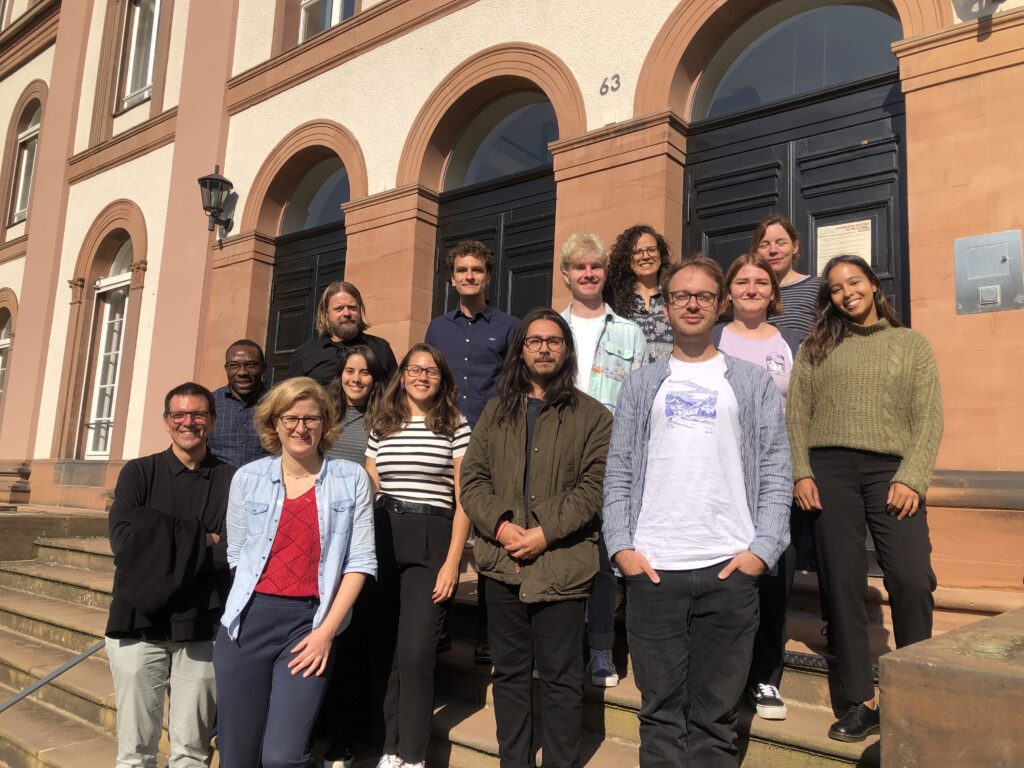02nd of February: We welcome Prof. Özge Kemahlıoğlu visiting Researcher

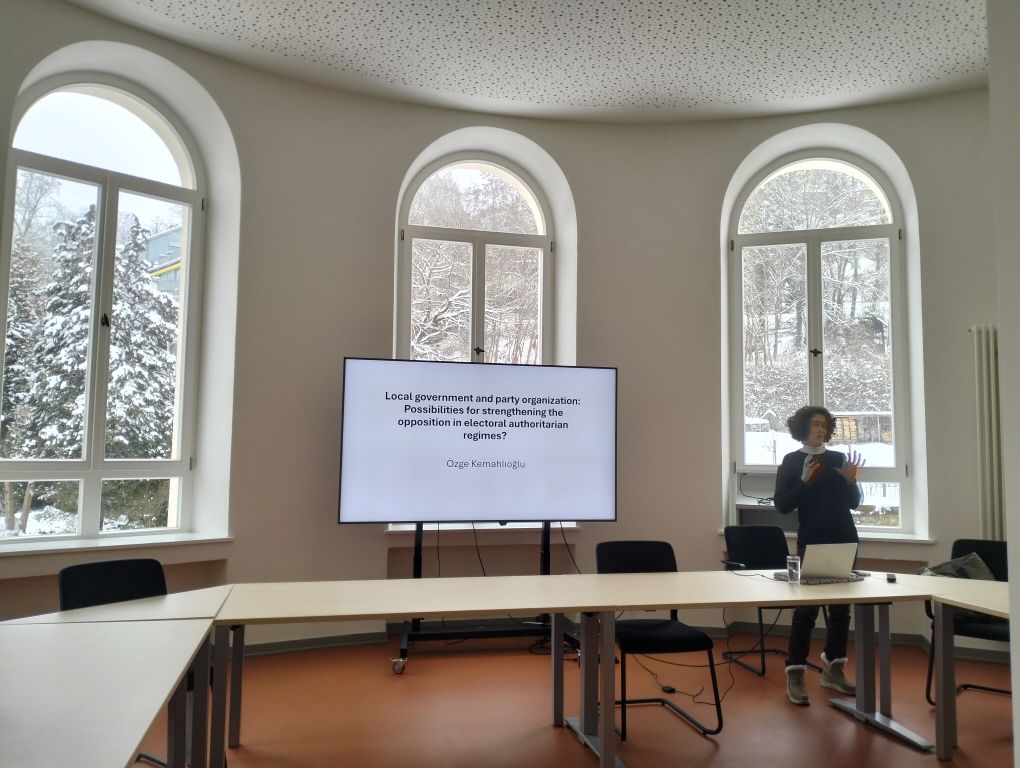
We welcome Prof. Özge Kemahlıoğlu (Faculty of Arts and Social Sciences, Sabanci University) as visiting Researcher at the University of Marburg as part of the IDP Group research network for the coming weeks.
Dr. Kemahlıoğlu is an internationally recognized scholar of comparative politics whose research focuses on democratic backsliding, distributive politics, local governance, electoral behavior, and political conflict, with particular emphasis on Turkey and Latin America. Her work combines quantitative methods with theoretically informed comparative analysis and has been published in leading international journals.
During her visit to Marburg, Dr. Kemahlıoğlu engages with researchers affiliated with the IDP Group, Institute of Political Science and Center of Conflict Stuies. As part of the visit, she will present her research titled “Policy Expectations and Information Provided by the Opposition in Non-democracies” at the Empirical Social Science Seminar on 5 January 2026.
19th of January: Who becomes a lobbyist? Evidence from Germany
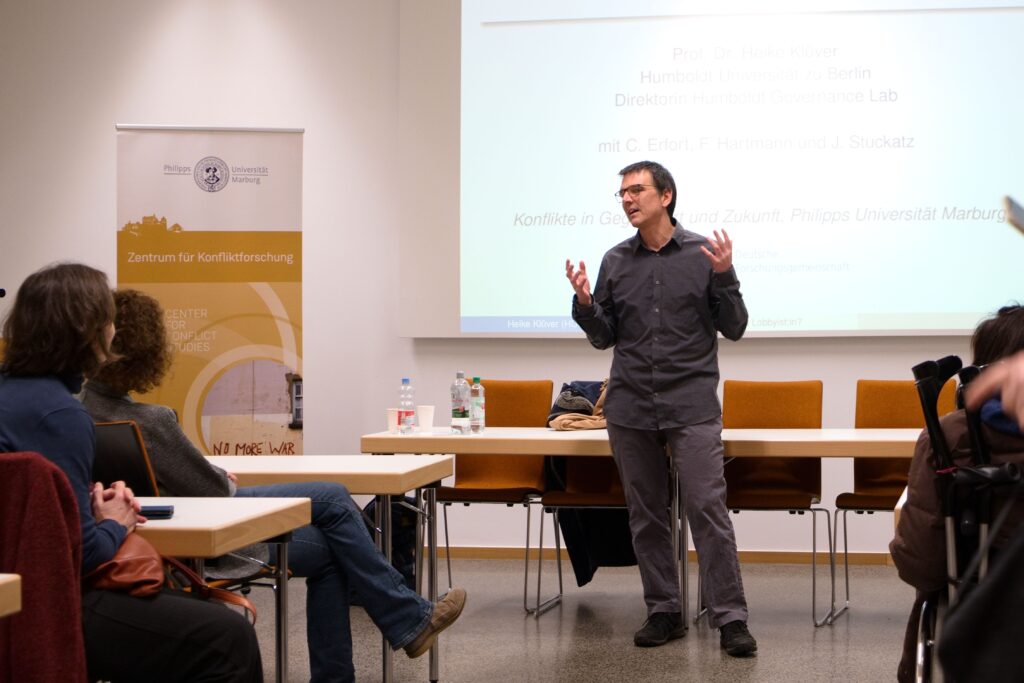
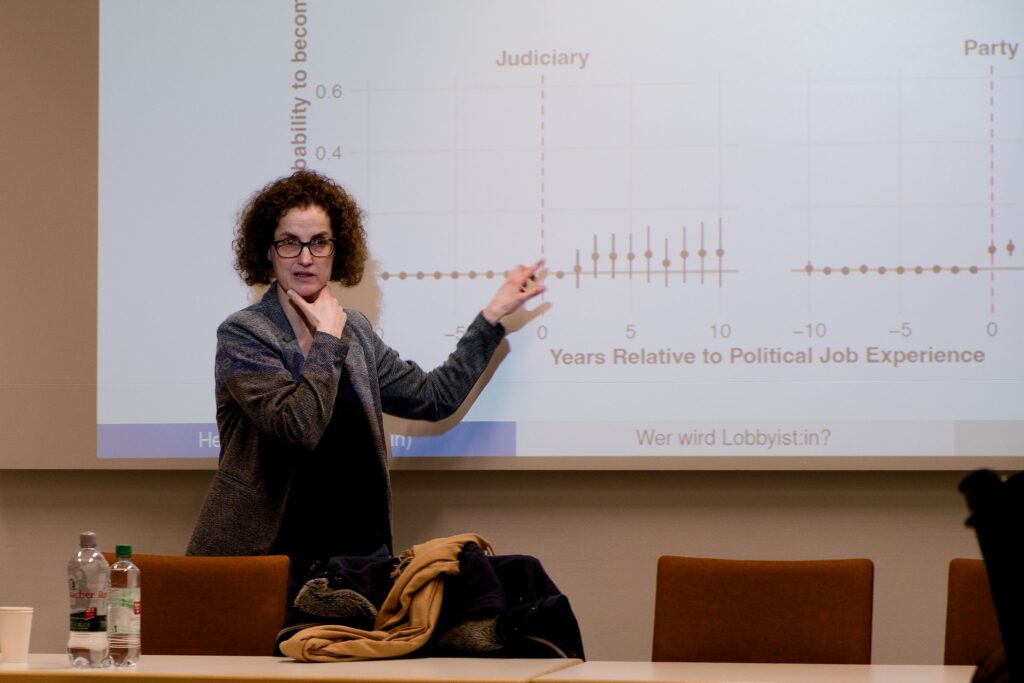
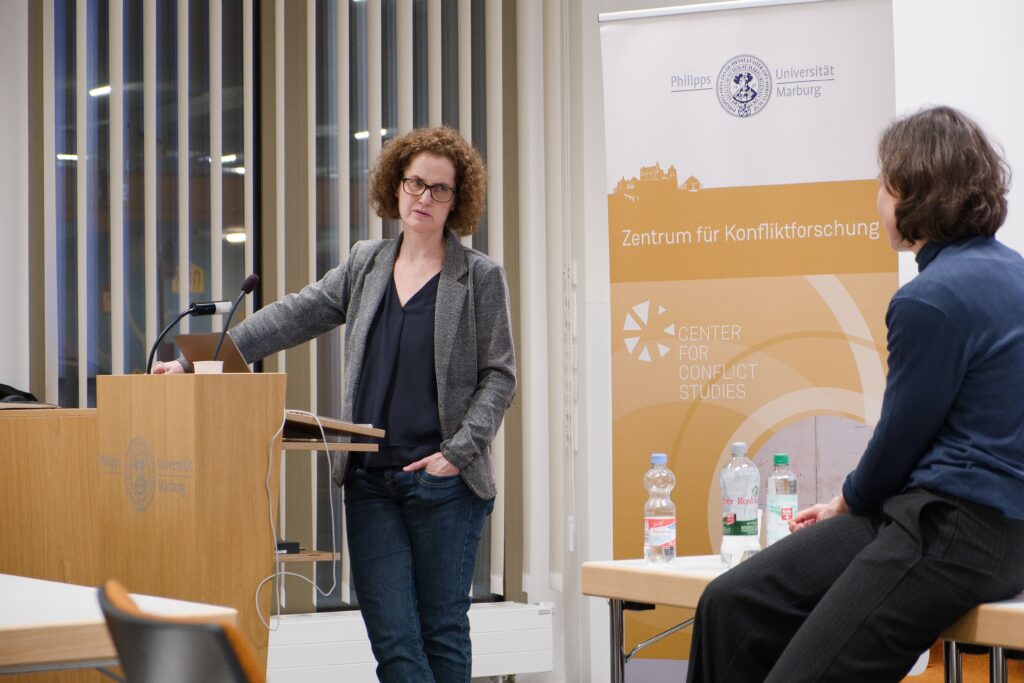
On Monday, 19 January 2026, the lecture series “Money and Politics”, continued with an evening on lobbying and political influence. Prof. Heike Klüver’s talk, “Who Becomes a Lobbyist? Evidence from Germany,” offered a data-driven look at a question that’s often discussed in stereotypes: who actually becomes a lobbyist, through which career pathways, and what kinds of experience and networks tend to matter.
A particularly interesting part of the talk was how she placed the German evidence in a broader perspective by comparing it to the United States. The contrast helped clarify what is specific to Germany’s political and institutional setting—and how different institutional arrangements create different incentives and pathways for lobbyist recruitment. Klüver also emphasized that movement from politics into lobbying is more common than the reverse, challenging the idea that lobbying is mainly a stepping stone into political office.
The evening closed with a lively Q&A moderated by Prof. Dr. Eva Wegner, where Marburg citizens asked thoughtful questions that pushed the discussion from evidence to implications, touching on transparency, influence, and what accountability can realistically look like in practice. Special thanks to Stéphane Voell for capturing the event.
20th of October: Who Doesn’t Sit in Parliament? Elections and Unequal representation in the German Bundestag
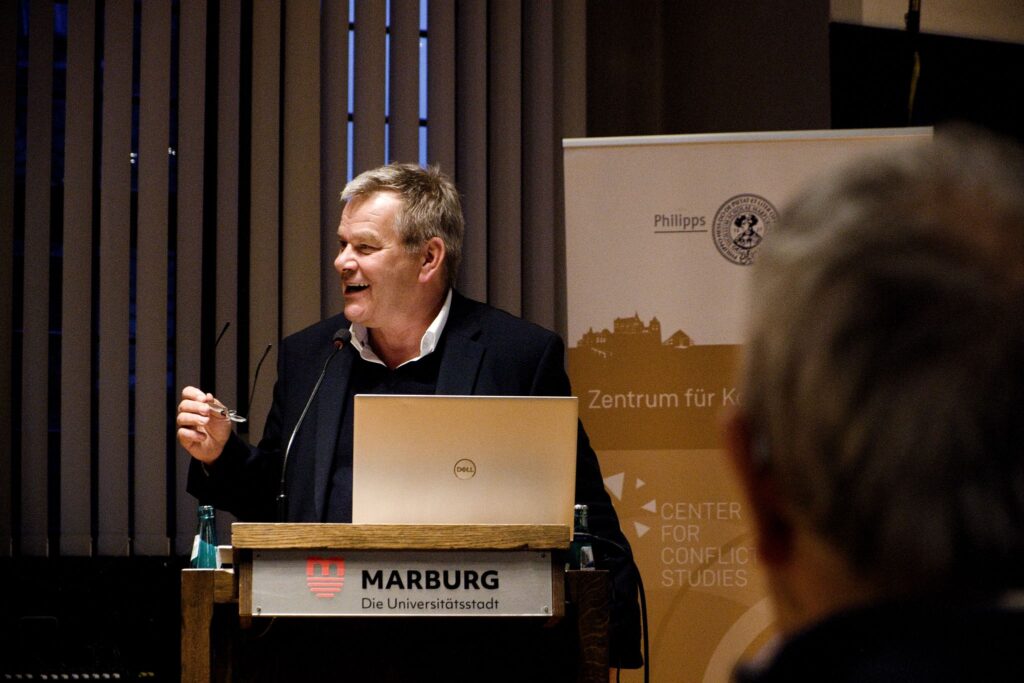
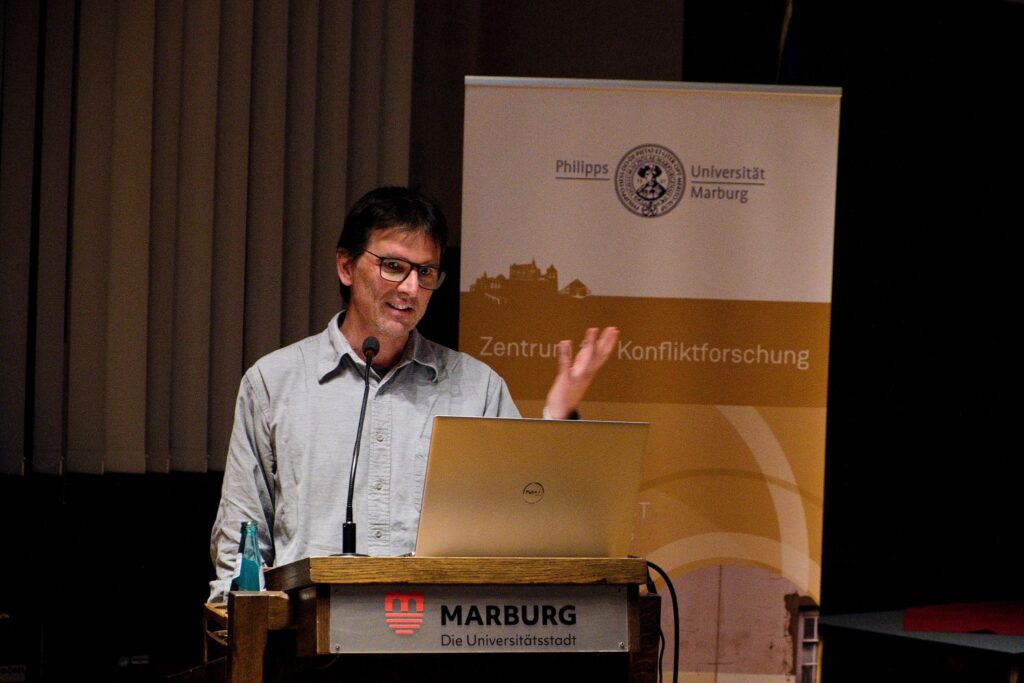
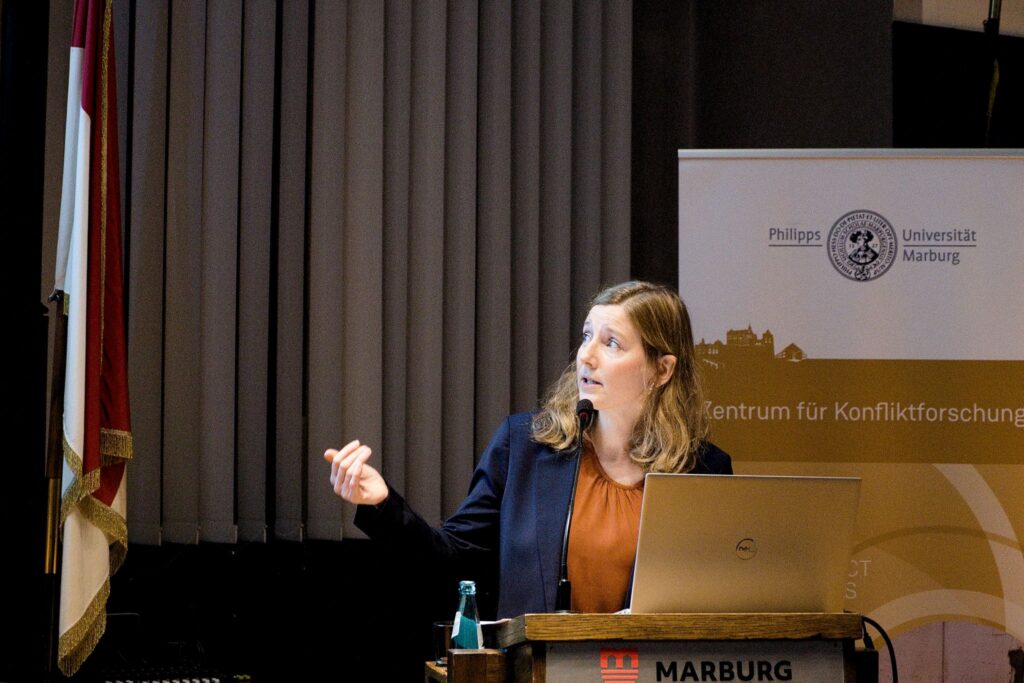
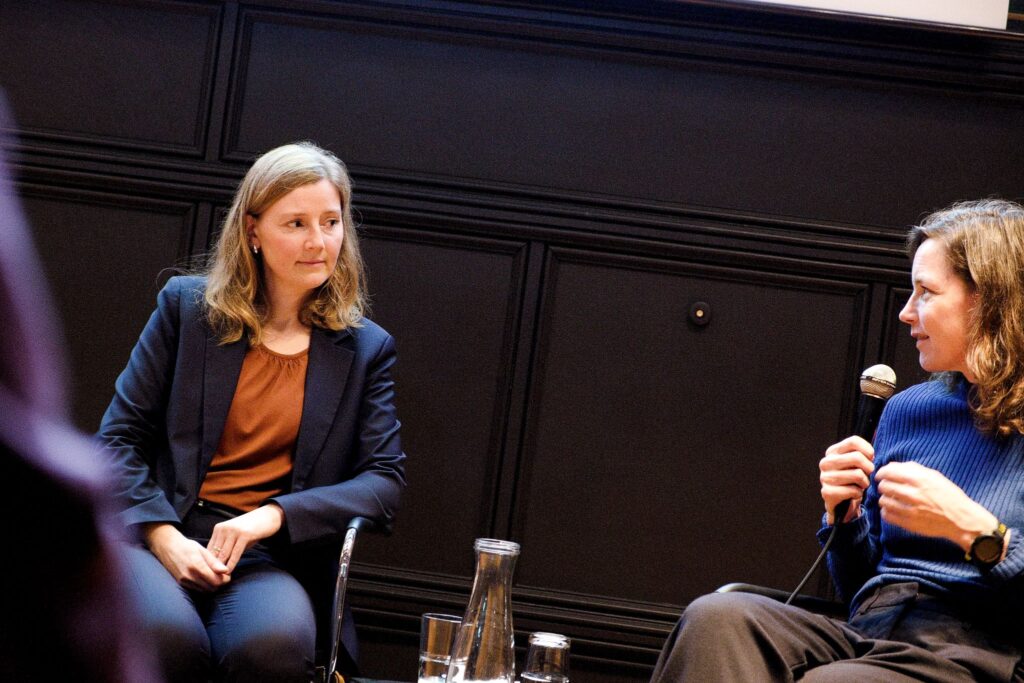
On Monday, 20 October, the “Marburger Stadtgespräch” opened its Future of Democracy series in the Historischer Rathaussaal with welcoming remarks from Marburg’s mayor, Dr. Thomas Spies, who shared personal anecdotes underscoring how everyday choices, for example in municipal budgets, show the real stakes of money in politics. Prof. Dr. Susanne Buckley-Zistel, director of the Center for Conflict Studies, framed the series as a space to connect scholarship with local democratic practice, followed by Prof. Dr. Miquel Pellicer, who highlighted how inequality and poverty shape participation and policy responsiveness. Dr. Lea Elsässer then examined the decline of working class politicians in the German Bundestag and illustrated the relevance of trade unions for the careers of working class politicians. The audience pressed the speakers with questions and debated the consequence of unequal representation for democratic participation and increasing polarization. Special thanks to Stéphane Voell for capturing the event.

20th of October: “Marburger Stadtgespräch” and the Future of Democracy Series
The Center for Conflict Studies at Philipps-Universität Marburg, together with the City of Marburg, invites the public to a new lecture series exploring how money and power shape politics today. The program is organized and moderated by Prof. Dr. Miquel Pellicer and Prof. Dr. Eva Wegner, in cooperation with the “Marburger Stadtgespräch.” Sessions take place on Mondays from 18:30–20:00. In 2025 we meet in the Historic Town Hall (Historischer Rathaussaal); the January and February 2026 talks will be held in the Deutscher Sprachatlas, Pilgrimstein.
Across Europe and beyond, democratic systems face simultaneous pressures: rising economic inequality, sharpening social divisions, and new forms of political influence. Our series examines how these trends interact in concrete arenas, from who gains a seat at the table, to how organized interests shape decision-making, to where societies converge or polarize around property and redistribution. By bringing together leading scholars and practitioners, we connect research with the lived realities of politics in Germany and elsewhere.
This is a public series designed for the Marburg community: students and researchers, civil-society organizations, journalists, municipal actors, and anyone curious about how power works in contemporary democracies. The spirit is open and dialogical; questions and debate are encouraged.

3rd of July 2025: Welfare States Matter for Democracy: Income-Based Participatory Inequality
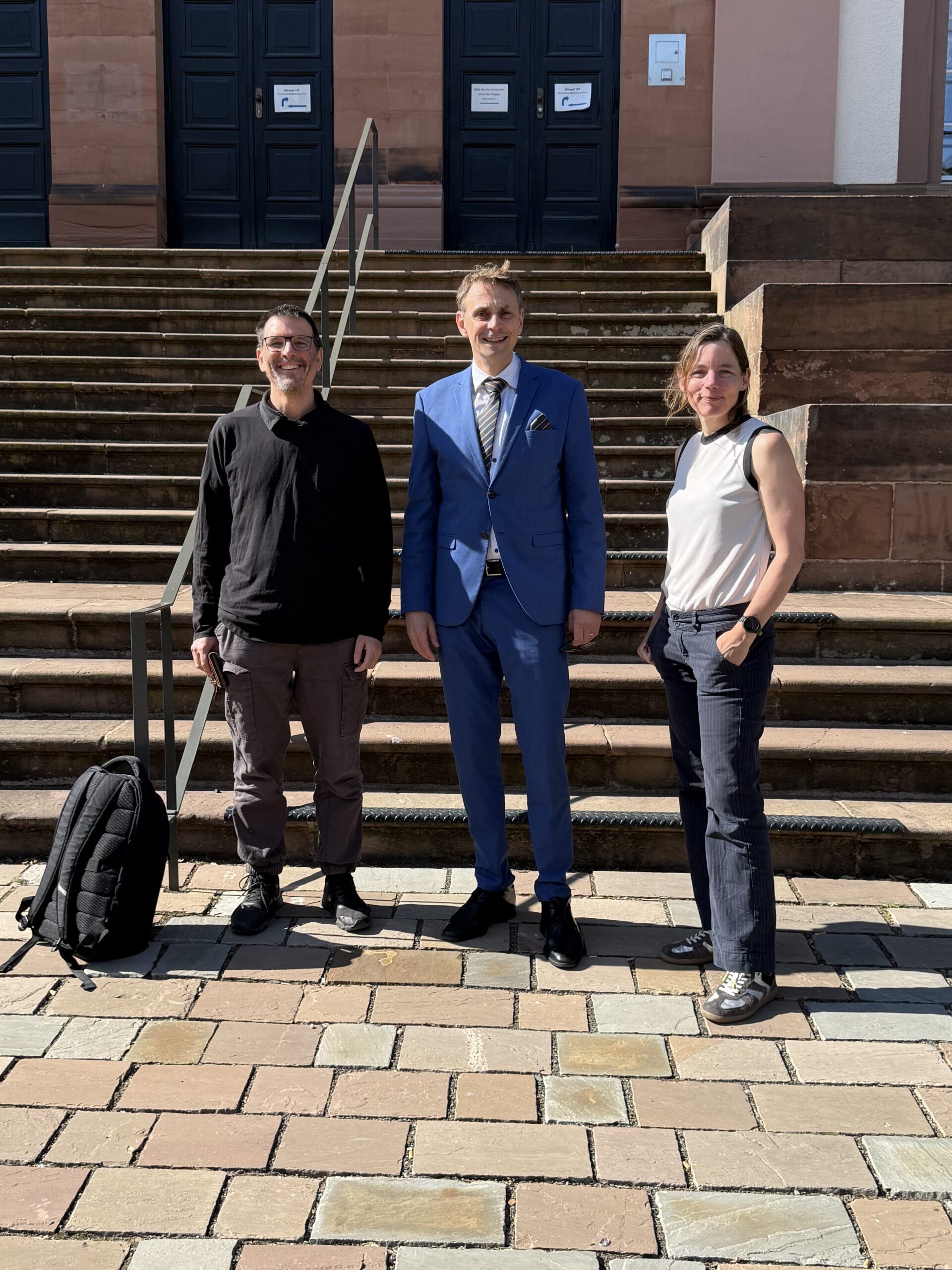
Our guest speaker Carsten Schneider, Professor of Political Science at Central European University (CEU), presented his research on the topic: “Welfare States Matter for Democracy: Income-Based Participatory Inequality”.
Poorer citizens generally participate less in politics. Yet, this income-based gap in participation is not the same across democracies and over time. Existing attempts at understanding the sources of this variation point to macro-level factors, such as compulsory voting, ballot complexity, or income inequality (Gallego, 2015; Solt, 2008) are not successful in explaining temporal variation in this participation gap when the institutional framework is stable. We propose a largely neglected, yet plausible, reason for the effect of income on political participation: the characteristics of the welfare state. In addition to providing resources relevant to participation, welfare state arrangements also create political constituencies that can be mobilized around a shared goal by political entrepreneurs. Building on Schneider and Makszin’s (2014) education-based analysis we inductively develop, with the use of Qualitative Comparative Analysis (QCA), various welfare regime types that condition patterns of income-based participatory inequality in democracies. These are produced based on an original data set from 19 OECD members between 1960 and 2010. In a second step, we complement our aggregate-level QCA with individual-level tests of the hypothesized mechanisms linking welfare regime types to low gaps in participatory inequality. Relying on six cross-national survey programs, such as the European Social Survey or the Comparative Study of Electoral Systems, we find consistent support for the mobilization-based mechanisms, while revealing mixed evidence for an attitudinal change mechanism and the resource-based mechanisms. Overall, our results indicate the effect of welfare state characteristics on political participation gaps in advanced industrial democracies. Welfare state reforms, and in particular retrenchment, are likely to have (damaging) consequences for democracy.
10th of June 2025: Money, money, money – Does Money Rule the World?
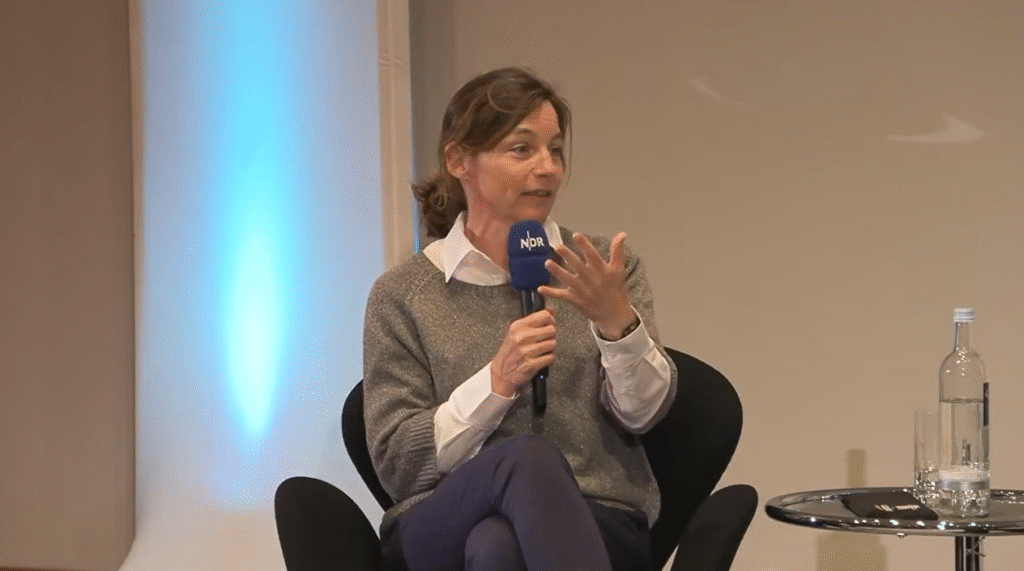
It shapes our private lives, drives political power, and increasingly defines global relationships. Wealth offers far more than comfort—it brings influence, authority, and access. This connection was starkly illustrated when Donald Trump, upon returning to office, handed sweeping powers to Elon Musk, possibly the world’s richest man, highlighting how financial capital can translate directly into political impact. Money has long been central to how states wield power, using monetary policy to stabilize economies and assert influence—alongside military strength and trade strategies. For individuals, money meets essential needs, fulfills aspirations, and, where absent, leads to hardship and exclusion. But how did money come to hold such immense significance? When did it become so entwined with control, status, and survival? Can we learn to use it more responsibly—and can it really make us happy?
These questions were at the core of the Herrenhäuser Gespräch on June 10, 2025, in Hanover. Eva Wegner talked about our project, “Politicians, Policies, and the Reproduction of Wealth”, which explores how politician characteristics and networks shape the distribution and preservation of wealth
Curious about what she had to say? Watch the full recording here (in German)
3th – 6th of March 2025: Power Project Research Meeting in Cape Town

Just over a month ago, our team gathered in beautiful Cape Town, South Africa, for the second in-person meeting of our project, “Politicians, Policies, and the Reproduction of Wealth”. This project brings together an interdisciplinary group of scholars from political science, economics, and law from South Africa, Brazil, Scotland and Germany, united by a shared interest in understanding how political actors and policy frameworks influence the long-term distribution and reproduction of wealth. Over several days of intensive sessions, we engaged in in-depth discussions of our ongoing research, critically evaluated preliminary findings, and identified new opportunities for collaboration. Together, we refined our shared research agenda and laid the foundation for new interdisciplinary initiatives that will guide the next phase of our project.
Beyond the formal academic program, the meeting also offered valuable opportunities for informal exchange. Shared dinners, casual gatherings, and time spent exploring Cape Town made this project meeting perfect and complemented our scholarly work. We are grateful to all participants for their enthusiasm, insights, and commitment. We look forward with excitement to our next meeting and to continuing the important work ahead.
7th February 2025
Empirical Social Science Research Seminar Series – Unions as Stepping Stones for Working-Class Officeholding? An Intersectional Perspective on Political Careers
In the fourth and last entry of this semester’s Empirical Social Science Research Seminar Series, Lea Elsässer from the University of Mainz presented her current reseach on the career-paths of German MPs.
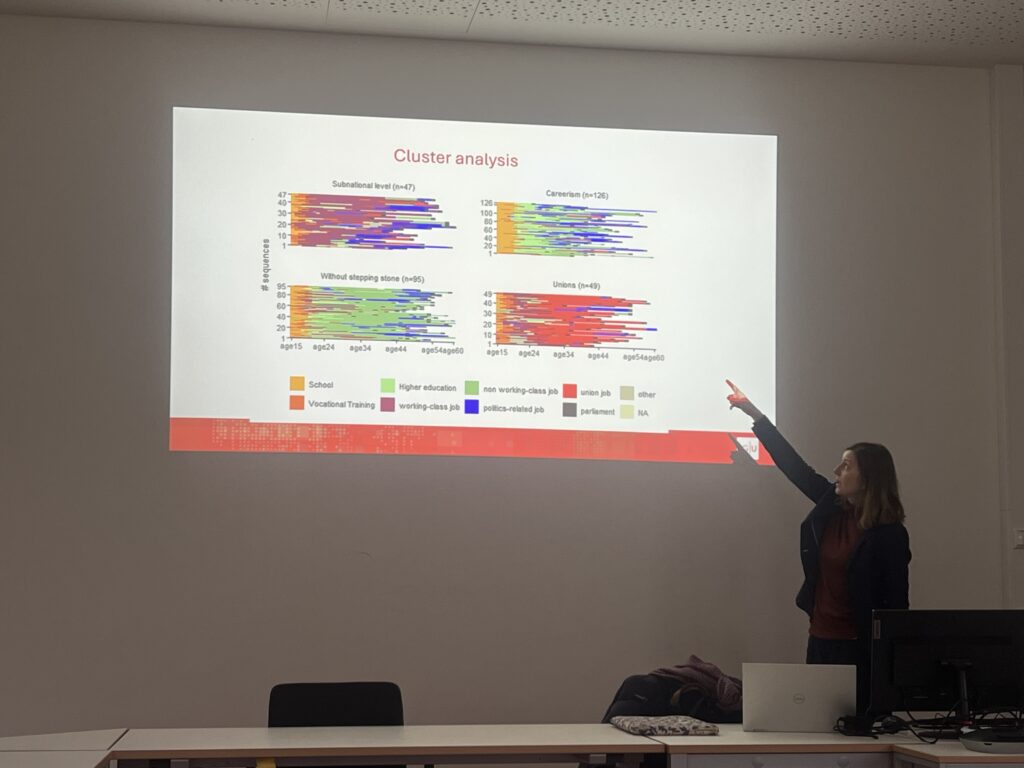
22nd January 2025
Empirical Social Science Research Seminar Series – How and Why Do Children and Parents Influence Each Other’s Social Worlds?
In the third entry of this semester’s Empirical Social Science Research Seminar Series, Lars Lszczensky from the University of Frankfurt held a seminar on one of his current projects.
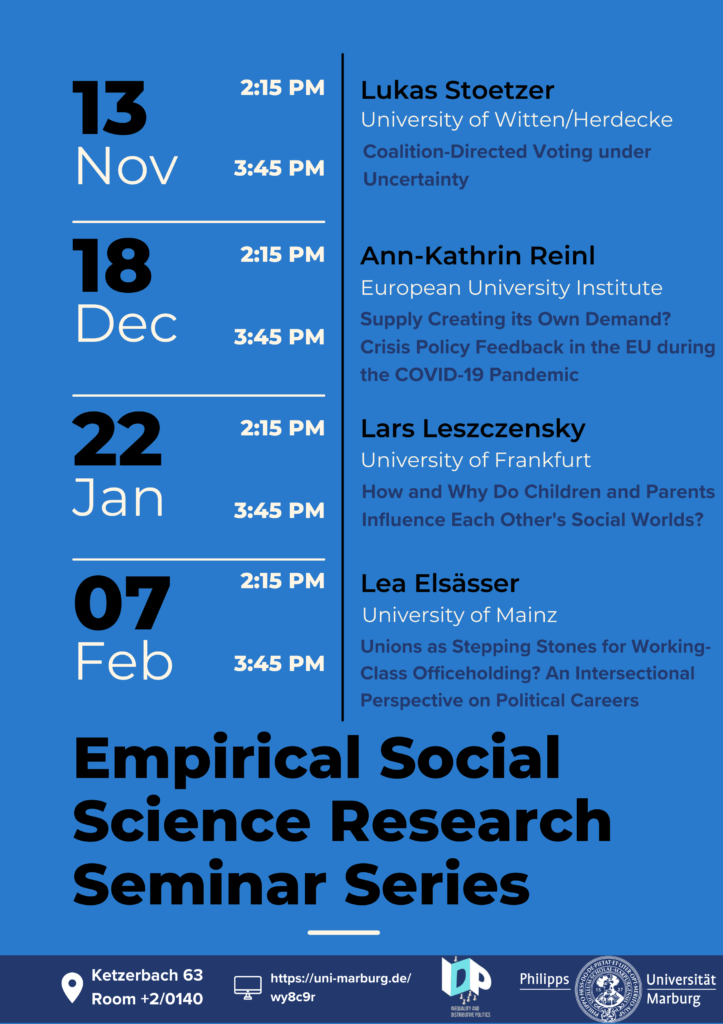
18th December 2024
Empirical Social Science Research Seminar Series – Supply Creating its Own Demand? Crisis Policy Feedback in the EU during the COVID-19 Pandemic
As the second entry of this semester’s Empirical Social Science Research Seminar Series, we hosted a seminar held by Ann-Kathrin Reinl from the European University Institute.

13th November 2024
Empirical Social Science Research Seminar Series – Coalition-Directed Voting under Uncertainty
We hosted a seminar held by Lukas Stoetzer from the University of Witten/Herdecke. It was the first entry of this semester’s Empirical Social Science Research Seminar Series, which is jointly organized by our IDP research team and the faculty for social sciences and philosophy. For this series, which was established in last year’s winter semester, we invite external speakers to present their latest empirical research.

28th and 29th October 2024
Movie Screening – Tax Wars
As part of the “Globale Mittelhessen” film festival, cinemas here in Marburg and in Gießen showed the documentary “Tax Wars”, directed by Hege Dehli and Xavier Harel. It describes how multinational corporations manage to pay very little taxes and why governments around the world seem powerless against this tax evasion. Afterwards, Miquel Pellicer and Letícia Barbabela chaired discussions about the documentary with the audiences. Read more →
10th October 2024
Workshop – Municipal Finances in South Africa
On 10th of October, we hosted a 2-hour workshop on municipal public finances in South Africa. The workshop was chaired by Nara Monkam, Chair of Municipal Finance at the Faculty of Economic and Management Sciences of the University of Pretoria. We are very grateful for her visit and for sharing her expertise with us!
19th-20th September 2024
Workshop – Distributive Politics in the Global South
In late September, we hosted the “Distributive Politics in the Global South” workshop, where we discussed the dynamics of inequality, redistribution, and political representation with scholars from across Europe. Read more →
